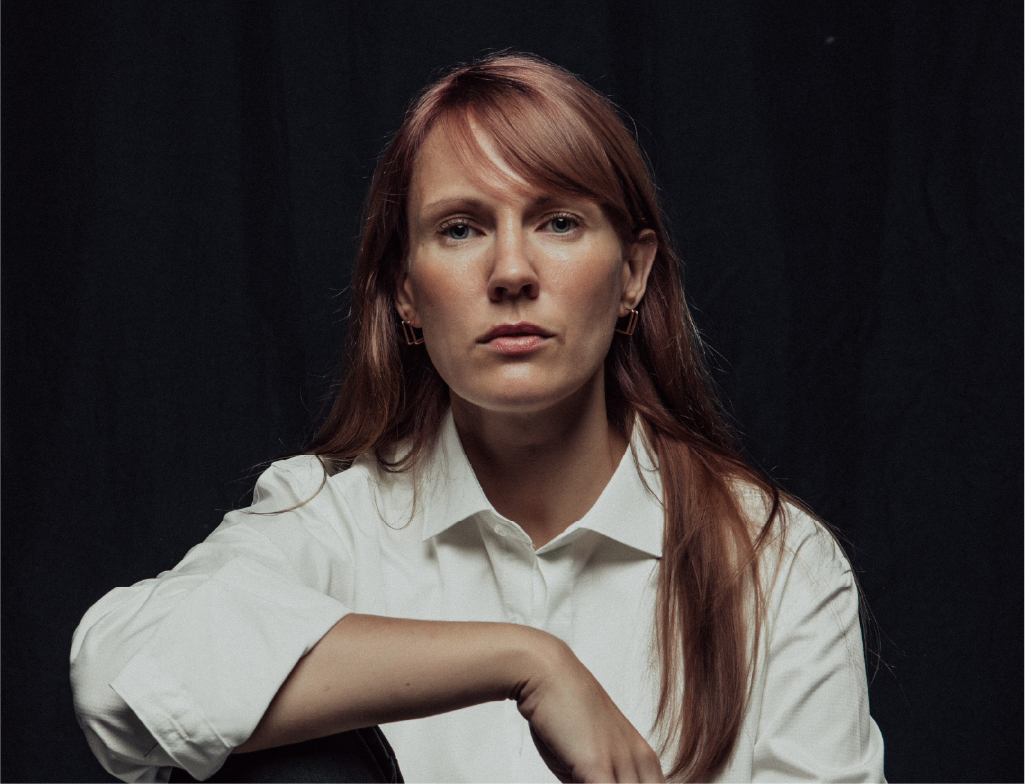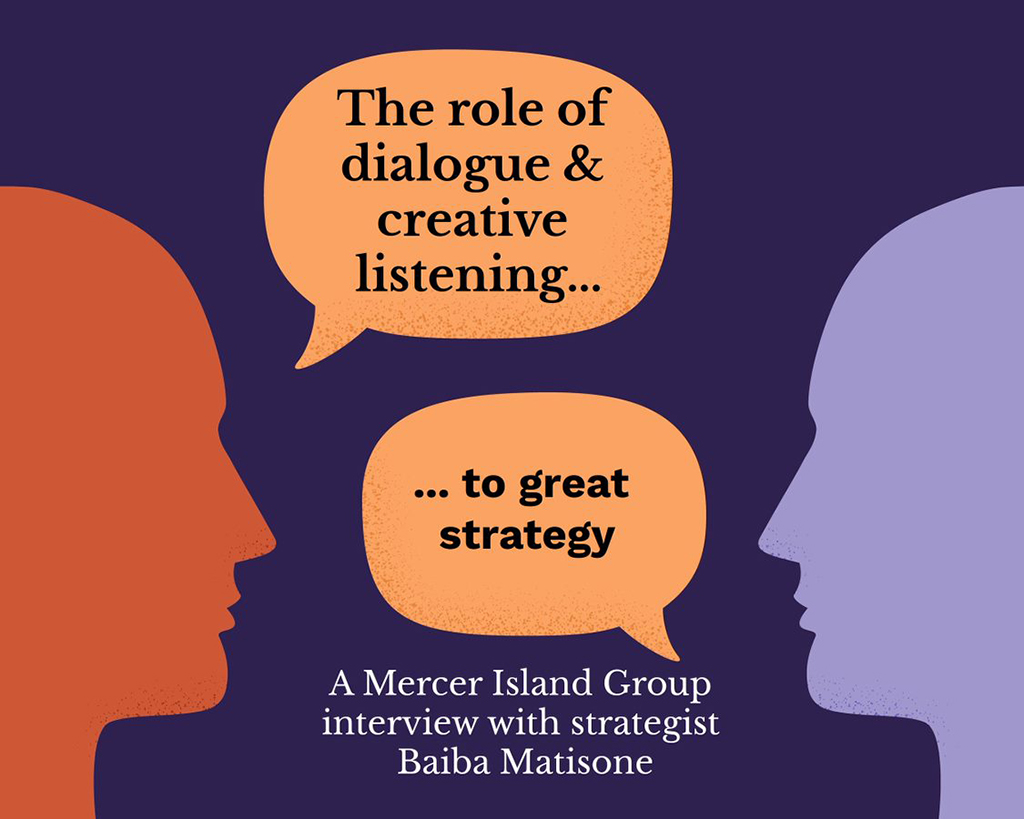Great strategy is hard to come by and hard to create.
When things go well, it can be magic. It can be the foundation that campaigns like “The World’s Most Interesting Man” and “Snickers Satisfies” are built upon.
When things go wrong, the “work”, the people and the business suffer. What’s the special alchemy that creates an environment that can yield great strategy?
To answer that question, we caught up with Baiba Matisone. Baiba hosts a strategy community in Berlin called Strategy Pints and is the owner of her strategy training platform – Planning Folklore. She has held strategy positions at several agencies, recently taught strategy at Miami Ad School, is a frequent contributor on LinkedIn and has assembled a wonderful collection of free account planning tools.
Here’s what we heard.
Baiba, you write about, teach and work in the world of creative strategy. It seems like this is a kitchen with many chefs! Given that, how can marketers, creatives, and general management work better with strategists? How can strategists work better with marketers, creatives, and general management?
Baiba: On reflection, I believe the question itself can be refined. Rather than isolating one group and assessing their cooperation with the entire system, we should explore a more holistic approach. I believe that strategists are an integral part of a larger system, not a separate problem that we should improve. Instead of considering how an individual screw (strategist) can fix the mechanism, we should focus on understanding our interdependence with the system and how our combined actions shape it, ultimately leading to outcomes that are often undesirable as a whole.
Great. If we think about this more holistically, where should we begin?
Baiba: I believe the whole system can be divided into three distinct levels of cooperation, which are largely unaffected by the other levels:
- The managerial-business level involves collaboration between client and agency management roles;
- The marketing-agency team level encompasses collaboration between marketers and the agency internal team;
- Internally within the creative agency, collaboration takes place among strategists, accounts, and creatives.
And that is just a start. To clarify the overall picture, we would need a fourth level: the cooperation between the brand and the agency in tandem, and the involvement of consumers. And the study of the dynamics of these two parties, which would include the examination of the mutual perception of both parties and the possible recognition that the target persons in many marketing documents do not fully reflect the authentic profile of real product buyers. It is very important to take into account that the effectiveness of the results of any social system depends on the consciousness of the persons involved in it. In other words, the form of the system is shaped by the consciousness of its members. There is a valuable shift in thinking here, from perceiving the system as external to oneself to recognizing it as inclusive and oneself as an observer within it. It is important to recognize that individuals are integral parts of a system, contributing to the larger whole. The question then becomes, what can we practically do to improve this system?
Great question – how can the system be improved?
Baiba: Recognizing that the most significant collaboration arises from dialogue among all parties is one approach. In the context of internal agency collaboration, both creatives and strategists must be ready and willing to engage in this dialogue. Creatives need to start from some degree of curiosity. “Maybe this planner has something to say that I don’t know. That might help me” – and that’s how the dialogue starts. And it’s also about being open and listening to the other person. Most agencies don’t have the openness that is necessary to do a good job. People don’t stay open and don’t want to acknowledge that they might not be right all the time.
To shift from egocentrism to ecocentrism, we must redirect the focus from external blame and looking beyond oneself or one’s team to introspection. Instead of asking who is at fault, we should inquire about the intention and source of our actions within ourselves and our team. It requires a change in the way we pay attention and operate, altering the source of our actions. We need to gaze into the depths of our system, avoiding superficial solutions. When we express ourselves solely from our individual ego perspectives, collaborative thinking becomes challenging—we fail to resonate as a unified team.
It sounds like everyone, regardless of role, needs to be a better listener. How can individuals and groups do that?
Baiba: To foster a constructive dialogue, it’s crucial to recognize that there are four levels of listening*:
- Download – listening in the usual way. Confirms what we already knew.
- Facts – listening from the outside. We notice information that does not match our previous assumptions.
- Empathetic listening from the inside. We see the situation through other people’s eyes.
- Creative listening from the field. We create a place where something new can arise.
*This idea is from Otto Scharmer, The Essentials of Theory U: The Core Principles and Applications (available on Amazon)
Changing the way we listen changes the way we perceive relationships, collaboration, and the world at large. Therefore, it is essential to change the way you listen and pay attention. If we continue to use deep listening, then over time we reach a deeper level in the conversation and in the other’s message. The quality of our listening determines how the conversation will turn out. The effectiveness of implementing change relies on participants’ capacity to assess the quality of their listening and adjust it according to the specific situation.
What gets in the way of better listening skills?
Baiba: Three obstacles hinder open listening: 1) the voice of judgment; 2) the voice of cynicism, which involves emotional distancing and the fear of being hurt; 3) the voice of fear urging us to cling to what we have and who we are. This feeling can take the form of a fear of losing something, being ostracized or dying. Today, it is impossible to be a successful leader without defeating this voice: it is necessary to let go of the old and embrace the new. Two obstacles that hinder development: 1) thoughtless action (when we blindly implement abstract ideas without learning anything. It shows our short-term thinking); 2) endless reflections and paralyzing analysis.
Okay – I’m listening! If I hear you correctly, I think you’re saying that strategy needs to be more like football (what we call soccer in the U.S.) than a relay race where one executive hands the baton to another. Is that correct?
Baiba: If you want to enhance cooperation, you need a shift from self-interested individuals to groups whose members are mutually supportive of each other. In order to achieve systemic change, to a collective “we” mentality, we must shift from ego-system consciousness to ecosystem consciousness. The first is the discovery of shared intentions. Crucially, this requires careful listening to key partners and identifying emerging needs and calls for action. Identifying the system’s flaws and actively participating in a process of shared listening, imagining, and creating becomes essential to making systemic change. If we don’t address the system at its core, it will continue to produce unintended results. You are not something outside the system. You are part of it.

Baiba Matisone, a Strategy Consultant, finds joy in exploring a diverse range of thought-provoking questions about business, culture, and people. She is also the host of a strategy community in Berlin called Strategy Pints and the owner of her strategy training platform – Planning Folklore. A wide range of her materials are available for very reasonable prices at baibamatisone.gumroad.com.
Steve Boehler, founder, and partner at Mercer Island Group has led consulting teams on behalf of clients as diverse as Zillow Group, Microsoft, UScellular, Nintendo, Ulta Beauty, Stop & Shop, Qualcomm, Brooks Running, and numerous others. He founded MIG after serving as a division president in a Fortune 100 when he was only 32. Earlier in his career, Steve Boehler cut his teeth with a decade in Brand Management at Procter & Gamble, leading brands like Tide, Pringles, and Jif.
